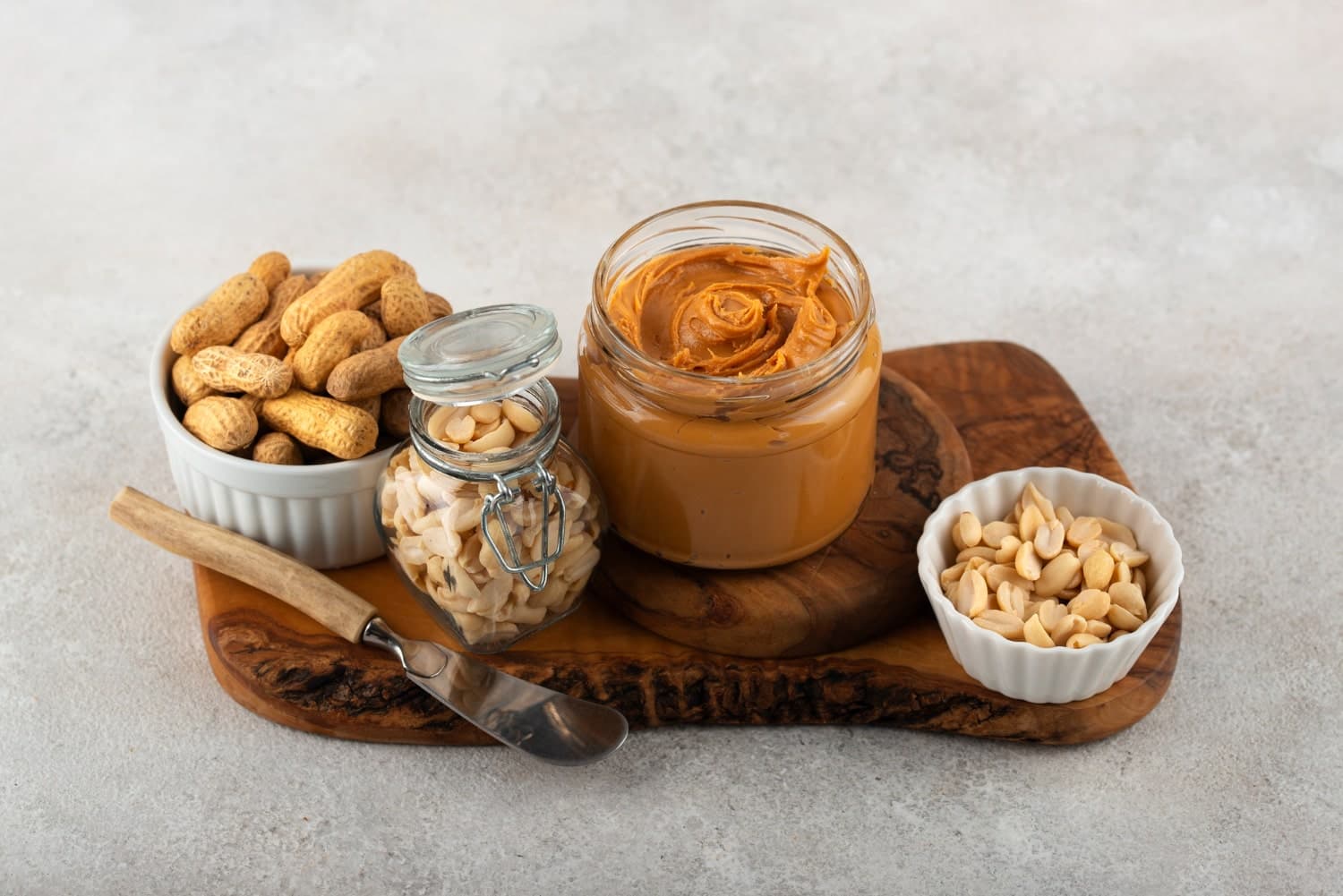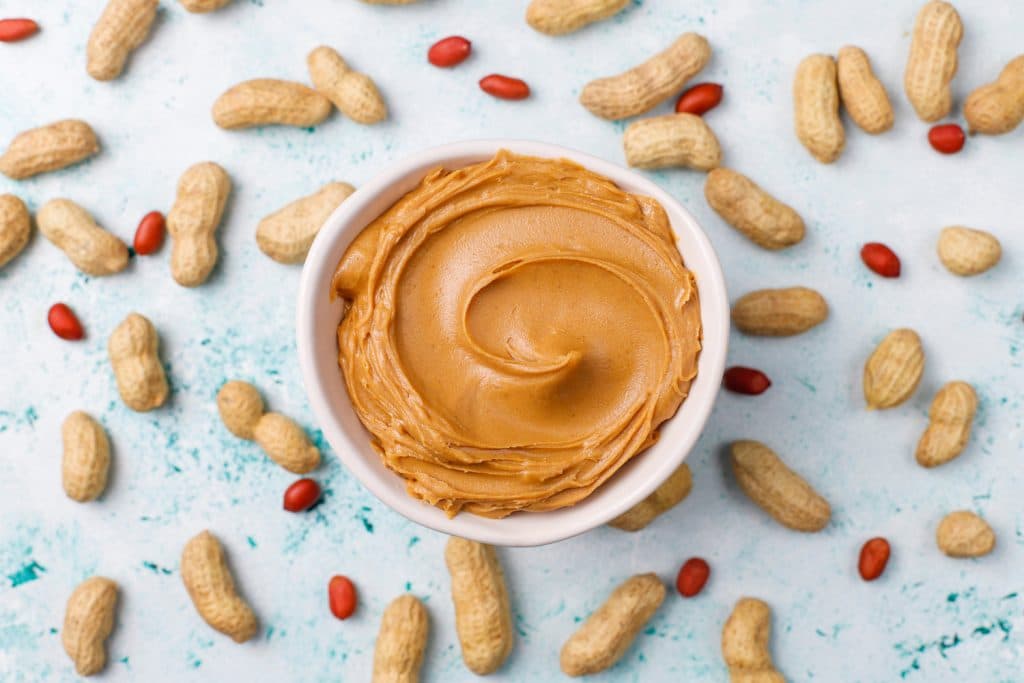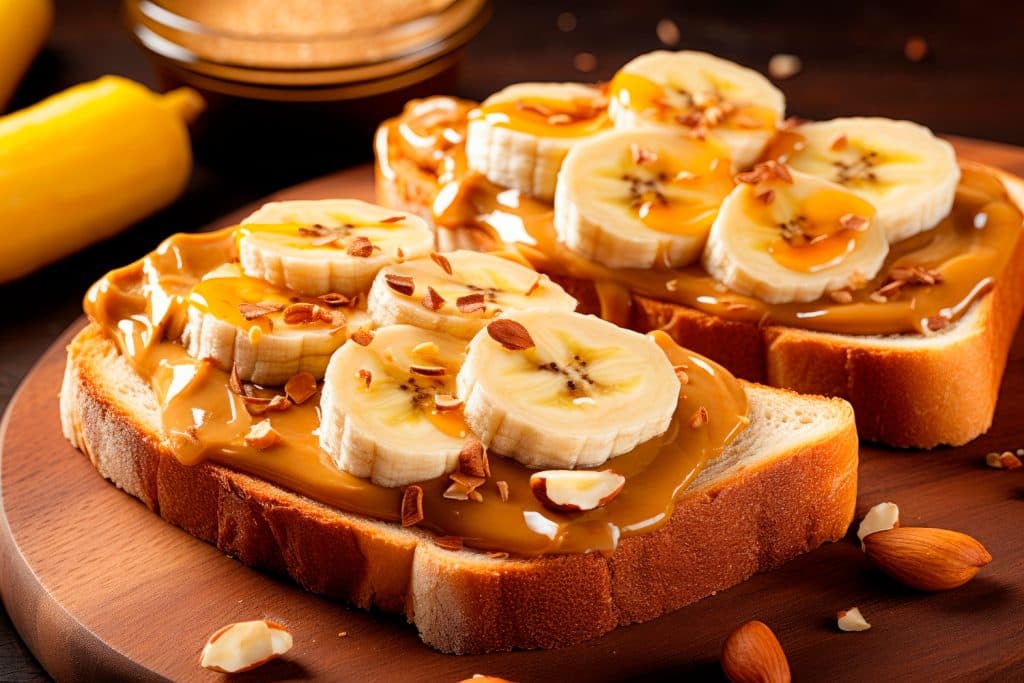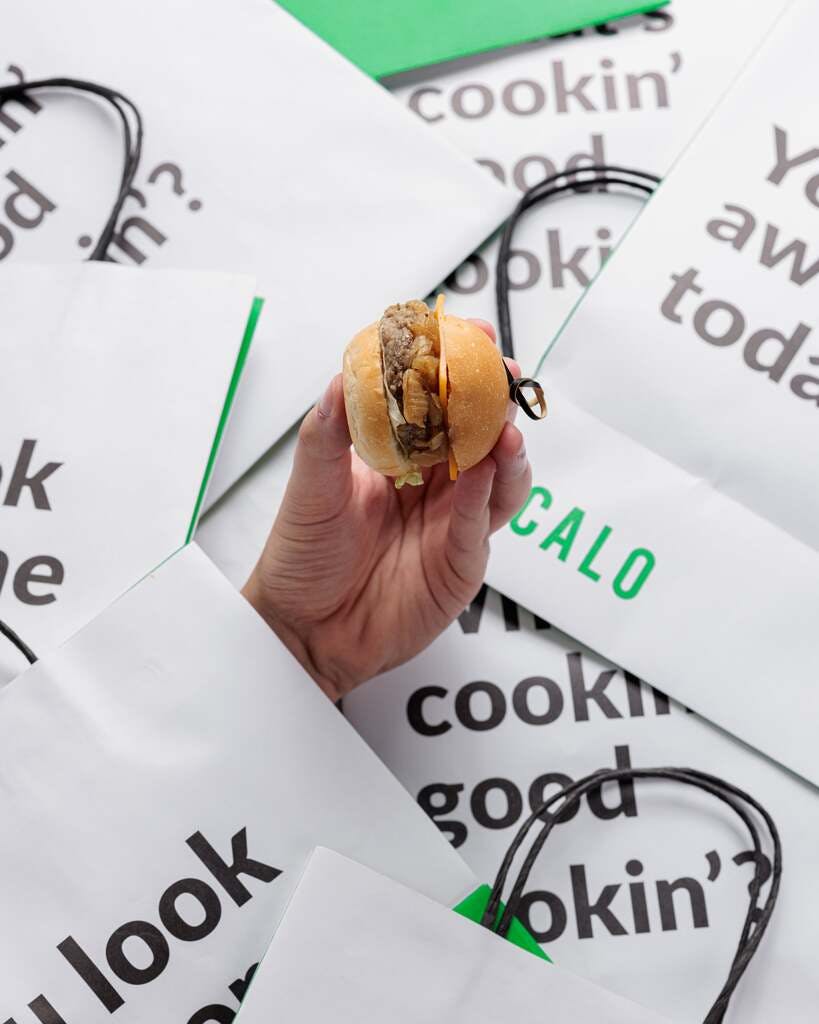Back to blog
Peanut Butter Benefits Where Favor Meets Flavor

Peanut Butter Benefits and Nutritional Value
Tips: How to Add Peanut Butter to Your Diet
Warnings & Precautions
Healthy Meal Delivery
Tips: How to Add Peanut Butter to Your Diet
Warnings & Precautions
Healthy Meal Delivery
Peanut butter is not only incredibly delicious, but it’s also a favorite among nutrition experts, athletes, pregnant women, and even those following strict diets. But is peanut butter healthy for everyone? In this article, we’ll uncover the secrets of this golden spread, from peanut butter benefits for the body and mind to its potential risks and concerns, and how to include it in your daily routine without tipping the calorie scale.
Peanut Butter Benefits and Nutritional Value
Peanuts are naturally rich in fiber and essential nutrients that promote lifelong health and vitality. They are a good source of plant-based protein, healthy fats, and a wide range of vitamins and minerals, including vitamin E, vitamin B3, magnesium, and iron. It is also high in biotin, zinc and selenium. With that in mind, some people are allergic to peanuts, which can be life threatening. Let’s explore the health benefits of peanut butter in detail, as well as the cautions and precautions.
Health Benefits of Peanut Butter

Beyond healthy fats and protein, natural peanut butter is a shield for your immune system. It’s loaded with antioxidants like resveratrol, phytic acid, and polyphenols, which help reduce inflammation, fight free radicals, and protect against chronic diseases such as cancer, diabetes, and heart disease.
Blood Sugar Control
Peanut butter is relatively low in carbohydrates, making it suitable for a keto diet. It also helps prevent sudden spikes in blood sugar levels, making it a good option for individuals with type 2 diabetes.
Read more about low carb diets.
Heart Health
This golden spread is packed with nutrients like magnesium, niacin, vitamin E, and heart-healthy fats, including essential omega-6 fatty acids and oleic acid, which also help improve insulin sensitivity. Being rich in antioxidants and resveratrol also helps reduce the risk of heart disease.
Brain and Memory
Helps improve blood flow to the brain, improving memory function and lowering the risk of Alzheimer’s disease due to its niacin (Vitamin B3) and antioxidants. Resveratrol has also been linked to slowing the effects of early aging and improving brain cell health.
Muscle Building and Bone Strength
It is a good source of plant protein, which supports muscle growth, strengthens bones, and provides enough energy to fuel physical activity. Many athletes and bodybuilders also use peanut butter protein as their post-workout snack. It promotes better blood flow, protects arteries, and supports testosterone production.
Read all about the benefits of exercise.
From Digestive Health to Weight Loss
It is widely used in weight loss diets due to its high fiber content; two spoons of peanut butter a day, or even a few times a week, can offer maximum benefits without weight gain. As fiber keeps you feeling full for longer periods, it helps regulate bowel movements and eases constipation, which in turn improves gut health. Regular intake may also lower gallstone risk.
Pregnancy
The high folic acid content in peanut butter supports fetal development by helping to prevent neural tube defects. The fiber and magnesium content ease muscle cramps, constipation, and common discomforts during pregnancy. The healthy fats and protein also help boost energy levels, relieving fatigue and supporting pregnant women in coping with tiredness.
Prevents Cancer
Antioxidants like resveratrol may reduce the risk of breast cancer and other types of cancer.
Read more about high protein diet for vegans.
Tips: How to Add Peanut Butter to Your Diet

- For Breakfast: Stir in a teaspoon of peanut butter with oatmeal. Add cinnamon and mashed banana or dates to savor the flavor.
- In Protein Smoothies: Blend it with plant-based milk, banana, and protein powder for a post-workout meal.
- On Apple or Banana Slices: A perfect snack to boost energy without spiking blood sugar.
- On Wholegrain Toast: Spread peanut butter and jelly or top with cinnamon or fresh strawberry slices.
- Energy Balls: Mix with oats, honey, and chia seeds, then roll into bite-sized snacks.
- Fresh from the Oven: Bake peanut butter cookies with vanilla extract or dark chocolate to satisfy your sweet tooth.
Read more about Protein Power for Kids.
Warnings & Precautions
Remember, moderation is always key. Yes, this golden Peanut butter is indeed so delicious that it can be incredibly tough to resist. But while it offers many benefits, it also has a few negatives:
- Allergies: May trigger severe reactions such as Anaphylaxis, which can be life threatening. Symptoms may include nausea or vomiting, difficulty breathing, lightheadedness, fainting or loss of consciousness, confusion, swelling, and a rapid heartbeat.
- Aflatoxins: Choose a reputable brand to avoid mold contamination, such as aflatoxins that grow on peanuts, which may potentially cause liver cancer or stunted growth.
- High Calorie Intake: Watch your portions to prevent weight gain.
- Headaches or Nausea: Overconsumption, especially of salted varieties, may cause discomfort for some individuals.
- Check Labels: Some commercial brands may have added sugars and trans fats.
Read more about sugar alternatives.
Healthy Meal Delivery
Your health journey begins here, with one or two tablespoons! Download the Calo App now and start enjoying wise, tasty food choices combined with peanut butter and more, because every spoonful brings you closer to a healthier lifestyle without compromise.
Frequently Asked Questions
How many peanut butter calories are in one tablespoon?
Approximately 95–100 calories per tablespoon.
Is peanut butter good for weight loss if consumed daily?
Studies show that peanut butter can aid in weight management due to its high fiber and healthy fat content, which may help you feel full and reduce calorie intake. However, excessive consumption can lead to weight gain. Moderation is key, as with all foods. 1-2 tablespoons per day is generally safe for most people.
How do I choose the best peanut butter options?
Choose natural or organic peanut butter varieties that are free from added sugars and hydrogenated oils. Always check packaging and buy from trusted brands to minimize aflatoxin risk. Also, try to pick low-salt or salt-free options with no salt if you’re watching your blood pressure.
Peanut butter benefits go beyond great taste; it’s a smart food that supports health and satisfies appetite. Make it part of your daily routine by choosing natural, high-quality types where flavour meets benefits. Read more about Healthy Food for Kids and learn about Healthy Living and many more health-related topics on the Calo Blog.








